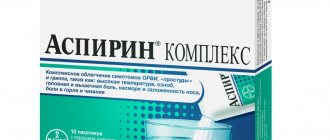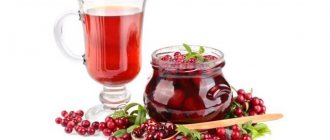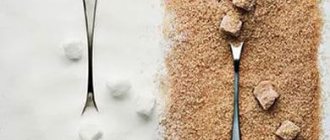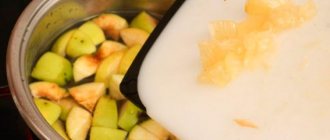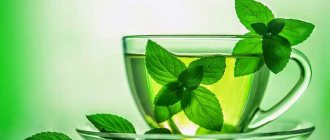If you pay attention to the statistics, then almost every person encounters a disease such as ARVI, and some even 2-3 times during the year. In essence, the disease does not pose a serious threat to human health if treated promptly and correctly.
But when a breastfeeding mother encounters an illness, doubts immediately arise whether breastfeeding during a cold will harm the baby and what medications are allowed to be used in such situations.
Cold symptoms
The main signs of illness are:
- increased body temperature above 37 degrees;
- tinnitus (rare);
- headache;
- fatigue and lethargy;
- runny nose;
- cough;
- nasal congestion;
- sneezing;
- painful sensations in the throat.
With proper therapy, the symptoms of the disease disappear within 7-10 days. Treatment should be started after consultation with a specialist, since most drugs are prohibited during lactation.
A cold is not a reason to stop lactation
Folk remedies for runny nose
Please note that home methods only clear the nasal passages and temporarily relieve congestion, but do not eliminate the cause of the runny nose. The most common methods of folk treatment include instillation of chamomile and aloe juice into the nose, as well as rinsing with water and salt.
Rinse the nose with salt water 4-6 times a day using a syringe or a small kettle. To prepare the solution, mix one teaspoon of salt with a liter of water. A nursing mother should use the syringe very carefully and not exceed the permissible volume of salt water, otherwise it will pass into breast milk.
Aloe juice is squeezed from one of the lower leaves of the plant and diluted with water in a ratio of 1 to 5 (one part of juice is five parts of water). The product is instilled into the nose, 3-4 drops two to three times a day. The juice of these plants moisturizes the nasal passages and relieves swelling. But keep in mind that the solution only has a beneficial effect within 24 hours of receipt.
Chamomile infusion is prepared from one teaspoon of dried flowers, which is poured with a glass of boiling water and left under the lid for one hour. You need to instill 3-4 drops three to four times a day. By the way, in addition to chamomile, you can use coltsfoot, thyme and string.
How to keep your child safe
What should be done in case of ARVI in a mother, so as not to infect the baby? If you feel the first signs of illness, immediately put on a medical mask and do not approach your baby without it. In this case, the mask should be changed every 2-3 hours.
In the case when there is someone to care for the baby other than the mother, it is necessary to minimize communication between the mother and the child. This will minimize the possibility of the baby becoming infected, and the mother will be able to fully rest and recover faster.
The room in which the patient is located should be regularly ventilated, since viruses die in cold and humid air. If there is an ultraviolet lamp, then it should be turned on up to 5 times a day for 10 minutes.
Is it possible to breastfeed if the mother has ARVI?
Doubts about the possibility of continuing to feed a baby with breast milk by a mother who has been diagnosed with ARVI arise for everyone who finds themselves in such a situation.
Caring women, independently assessing their condition, often decided to continue breastfeeding. And they were not mistaken.
Doctors around the world have carefully studied this issue for several decades.
Observations have confirmed that breastfeeding helps a healthy baby not to get sick, and facilitates and speeds up the recovery process for an ill baby. Thus, it is now officially confirmed that the composition of breast milk stimulates the processes of the immune system. The list of contraindications for the main modern antiviral drugs does not include the lactation period.
The appearance of signs of a cold - cough, fever, runny nose - means that the virus has been in the mother’s body for some time. In addition, the process of fighting them has already been launched, and specific antibodies are actively produced by the body.
By the time a nursing woman begins to sneeze, the pathogens and antibodies have already reached the baby through breast milk.
Stopping breastfeeding during this period is not recommended, as this will deprive the baby of support in the fight against infection. Official medicine shares the opinion that in matters of strengthening the child’s immunity, breast milk will bring much more benefit than the damage caused by a cold.
During the period of illness, regular, or better yet more frequent, breastfeeding becomes especially important. Increasing a child’s own immunity will help cope with the disease and become a reliable protective barrier against viruses in the future.
This applies to those cases when a sick nursing mother does not take medications, the contraindications of which include refusal to feed. If the disease requires drug treatment, the doctor may individually recommend:
- Completely stop breastfeeding.
- Limit feeding to expressed breast milk, avoiding breastfeeding.
This may be taking medications that are contraindicated for use during lactation, or the severe physical condition of the mother, which does not allow her to hold the child.
Doctors insist on refusing to feed in cases of heart failure, high blood pressure, serious problems with the kidneys and lungs, during the postoperative period.
In other cases, the generally known period of treatment for ARVI is considered to be a week. Since the spread of the virus occurs through airborne droplets, it would not be superfluous to use a mask when interacting with the child, including during feeding, that will protect the baby’s mucous membranes from pathogenic sputum.
Breast milk will help maintain the water-salt balance, which will provide the necessary conditions for the functioning of the respiratory tract and prevent drying out of the nasopharyngeal mucosa.
How to treat colds during lactation
If you catch ARVI, then follow these recommendations:
- Do not stop breastfeeding your baby, do not express, or boil milk. During feeding, if the baby is healthy, wear a special mask so as not to infect him. In the event that the baby becomes infected, the medications you take will be enough for him, because they enter his body through breast milk.
- Take acetylsalicylic acid with caution, as its overdose causes metabolic disorders in the body of infants and women.
- Avoid taking analgesics because they negatively affect the functioning of the child’s nerve cells;
- It is prohibited to take medications containing bromhexine.
- Strictly follow the recommended dosage of the medicine and do not exceed it in any case.
- While taking medications, it is recommended to take antihistamines, especially if the child has a tendency to allergies.
- If your fever does not go down for a long time, consult your doctor again.
- Take only those medications that are safe during lactation and will not affect the baby’s health in any way.
What does Dr. Komarovsky advise?
Dr. Komarovsky, in his characteristic manner of stating the obvious, reminds us that it is impossible to deceive the natural mechanisms of the body. If it is typical for him to develop immunity against infection by the 5th day of the disease, nothing will help cure him faster. Naturally, it will not be possible to cope with acute respiratory infections faster than in 5 days, even if you take the most effective medications.
Regarding the healing power of raspberry jam for a sore throat and honey for a cold, Komarovsky says that they will not interfere, but will not contribute to a quick recovery (we recommend reading: can honey be used while breastfeeding?). The doctor advises drinking more, using saline solutions to moisturize the mucous membranes, and not forgetting to ventilate the premises. You can listen to the opinion of a famous pediatrician, but a face-to-face consultation with a local doctor will not be superfluous.
Treatment
Below we will talk about traditional and folk remedies for treating colds during lactation. Remember, they can only be used after consulting a doctor.
At a temperature
If you have a fever and cannot see a doctor right away, then take Grippferon, which is well tolerated by the body, and also has no contraindications for use during breastfeeding.
You can also optionally use Ibuprofen or Paracetamol, which are excellent for treating fever. These drugs are quickly eliminated from the body, which is especially important during lactation.
Please note that excessive use of these drugs can be harmful. And if your body temperature rises above 38 degrees, you need to seek qualified help.
Nasal drops will help cure a runny nose during breastfeeding
With a runny nose
To treat a runny nose, it is recommended to use plant-based nasal drops, for example, Pinosol or sprays containing sea water (Salin, Aquamaris). If the nose is very stuffy, then in this case it is recommended to use vasoconstrictor drops: Nazivin, Tizin.
It is forbidden to use such drops for a long time, as they are addictive, and in some cases cause atrophic rhinitis. Typically, the course of treatment with drops should not exceed 7 days. If you do not feel relief during this time, consult your doctor.
For sore throat and cough
If you are bothered by a cough and discomfort in the throat, use Strepsils or Hexoral. Herbal syrups, including Doctor Mom and Chest Elixir, will help relieve acute attacks of pain in the respiratory organs.
An important rule: do not use drugs that contain bromhexine when treating a cold during lactation, as they are strictly prohibited. Also, if you decide to be treated with antibiotics, consult your doctor first.
If the disease is accompanied by the appearance of herpes, then in this case you can use L-Lysine, but before using it you should also consult a specialist.
Folk remedies
Traditional medicine will help cure colds during breastfeeding. Inhalations with boiled potatoes or essential oils are considered the safest.
If you decide to use ethers for inhalation, then eucalyptus is best suited in this case. Place 2-3 drops of oil into a special teapot with boiling water. After this, place a funnel made of cardboard or thick paper into the spout of the kettle. Inhale the vapors for 5-10 minutes. This procedure will clear the airways, eliminate runny nose and sore throat, and significantly improve your well-being.
Linden tea, as well as honey and lemon, help cope with the disease when it has just begun. You can also use gargles with chamomile, but only if the baby is not allergic to this product.
Onions and garlic can cure respiratory ailments. But doctors do not recommend using these products during lactation, as they affect the taste of breast milk, as a result of which the newborn may refuse to breastfeed.
Mustard foot baths before bed are useful for colds. After the procedure, you should put on warm woolen socks and wrap your feet in a blanket.
Rubbing the body with a weak solution of vinegar will help cope with the temperature, as well as improve overall well-being. In this case, you should drink warm liquids, such as chamomile tea, often and generously.
Safe medications: what is suitable for nursing mothers
Treatment of colds during lactation should be comprehensive. Tablets, capsules, syrups, nasal drops and inhalers can help. The choice of a particular drug depends on the nature of the disease and symptoms. Paracetamol in dosages prescribed by your doctor can relieve high fever and headache. When choosing how to treat a cold, it is better to give preference to conventional domestically produced tablets. Powdered mixtures with flavorings and flavorings contain a lot of sugar and additional components that are harmful to nursing mothers and babies.
For respiratory viral infections, stronger drugs are recommended; their choice should be entrusted to the attending physician. For the treatment of uncomplicated influenza, medications that relieve acute symptoms and help destroy viruses are suitable. The instructions should indicate that this medicine can be used during lactation.
If you have cold kidneys or an exacerbation of a chronic disease, which often occurs against the background of a cold, you need to consult a specialist. He will select an anti-inflammatory agent with a mild effect based on medicinal herbs.
Prevention is especially important during cold season. In the autumn-winter period, it is recommended to rinse the nose with salt water or soapy water, drink vitamin complexes and instill interferon into the nose. These drops are useful not only for the mother, but also for the baby. It was noticed that children who received this safe drug got sick much less often. Preventive measures are necessary for all family members; if one of the household members accidentally becomes infected, the others will not suffer.
Prevention
To increase your immunity, just follow these rules:
- during viral epidemics, try not to be in crowded places;
- when visiting the clinic, be sure to use a medical mask;
- dress according to the weather, try to avoid hypothermia;
- visit the pediatrician only on the designated days;
- carry out wet cleaning and ventilate the room every day;
- sleep at least 8 hours a day;
- try to maintain optimal temperature and humidity in the room;
- try to rest enough time.
As a rule, compliance with such rules will reduce the risk of contracting ARVI. Take care of yourself and your baby!
Is it possible to feed a child breast milk during illness?
Inexperienced mothers and even women with breastfeeding experience often ask the question: “Can I continue to breastfeed my baby if I have a cold or ARVI?” The answer to this is unequivocal: “Yes, you can.”
However, it is recommended to take precautions to avoid infecting the child. To do this you need:
- wear a gauze bandage during feeding;
- wash your hands often with soap, especially before picking up the child;
- change bed and underwear more often;
- treat surfaces with disinfectants;
- provide individual dishes for mom;
- ventilate the room and carry out wet cleaning;
- maintain optimal temperature in the room (not higher than 22 ° C);
- prevent dry air by using humidifiers or hanging wet towels or diapers on central heating radiators.
The last 3 items on the list should be familiar to a family with a small child. These are universal methods of disease prevention. But they are also necessary for the mother’s speedy recovery.
If everything is clear regarding breastfeeding during colds, then a disease such as herpes, which is popularly called “cold on the lips,” may raise doubts. Herpes is also caused by a virus that lives in the body of every person, but it actively manifests itself during a period of decreased immunity, including after childbirth and during lactation.
The herpes virus does not penetrate breast milk, so there is absolutely no need to stop lactation. It can only be transmitted to a child through contact. Therefore, during the treatment period, it is necessary to limit close contact between the mother and the baby, and absolutely exclude kissing and hugging. And also before crusts form on the lips, you should wear a gauze bandage.
Cold sores on the lips are blisters that can cause tingling and itching when they appear.
Other preventive measures are the same as for colds.


